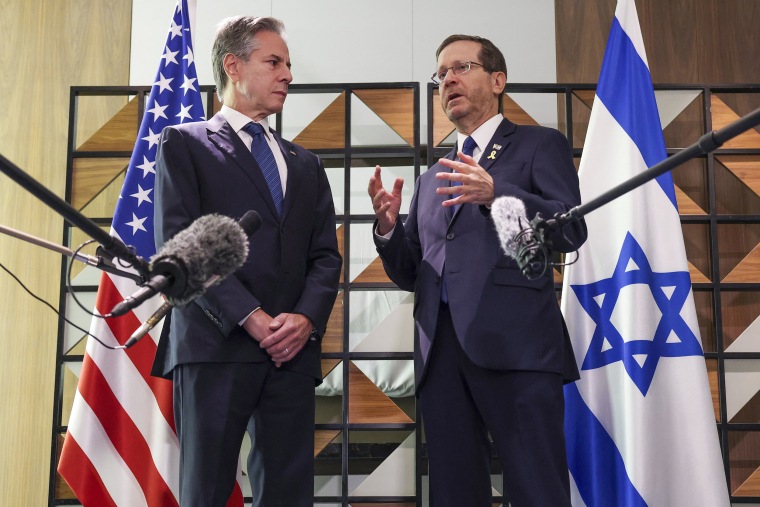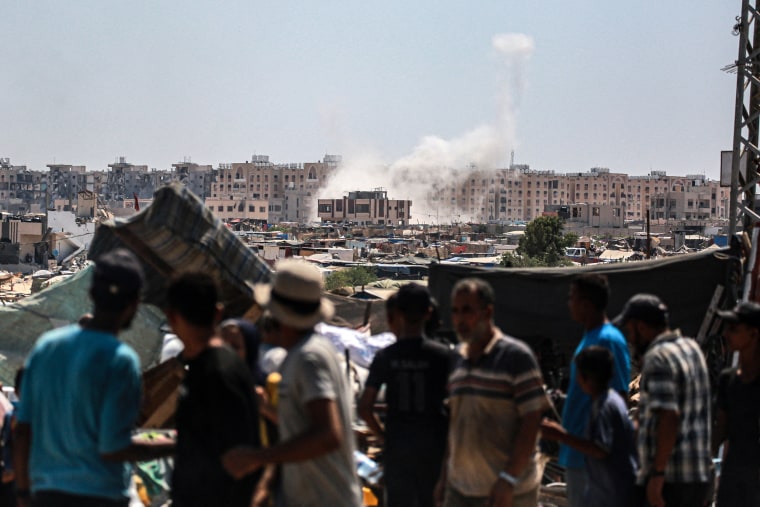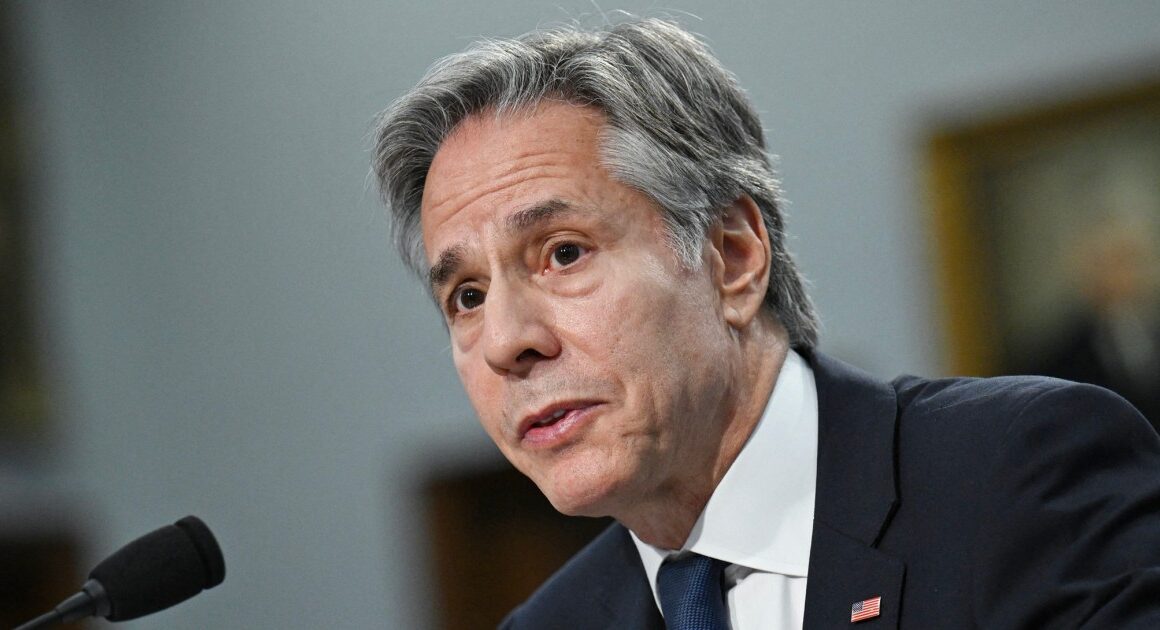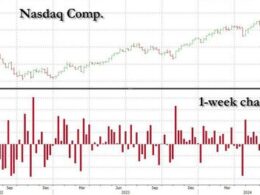This may be the “last opportunity” to end Israel’s offensive in the Gaza Strip and free the hostages who remain held in the enclave, Secretary of State Antony Blinken warned Monday, leading the push for a deal given new urgency by fears of a wider regional conflict with Iran.
Cease-fire talks have reached a “decisive moment,” Blinken said as he met with Israeli leaders on his ninth trip to the Middle East since the fighting began.
Speaking in Tel Aviv ahead of a meeting with Israeli President Isaac Herzog, Blinken said the new round of negotiations were “probably the best, maybe the last, opportunity to get the hostages home, to get a cease-fire and to put everyone on a better path to enduring peace and security.”
He then held what he called a “very productive” meeting with Israeli Prime Minister Benjamin Netanyahu. Speaking to reporters after the meeting, Blinken said Netanyahu had accepted a bridging proposal for a cease-fire deal and it was “now incumbent on Hamas to do the same.”
The U.S. and fellow mediators have voiced optimism, but the talks have so far failed to produce a clear breakthrough, while Israel and Hamas have blamed each other for the lack of progress.
Negotiations resumed Thursday in Qatar’s capital, Doha, and were expected to continue this week in Egyptian capital Cairo. But a spokesperson for Hamas told NBC News on Monday that negotiators for the militant group had no plans to attend the talks.
In a separate statement Sunday, Hamas said Israel had placed new conditions on a framework deal that hampered progress toward reaching an agreement.

Israel also suggested it had clear red lines. “We are conducting negotiations and not a scenario in which we just give and give. The principles we have determined are vital for the security of Israel,” Netanyahu said Sunday.
He maintained that those principles were in line with a proposed framework deal outlined by President Joe Biden in late May.
Washington has previously blamed Hamas for holding up efforts to strike a deal, but U.S. and foreign officials have said new conditions introduced by Netanyahu during negotiations have also stifled progress.
Ahead of his meeting with Herzog, Blinken said the focus of his visit to the region and Biden’s orders were to “try to get this agreement to the line and ultimately over the line.”
“It’s also time to make sure that no one takes any steps that could derail this process,” he said.
In an interview on BBC News’ Radio 4 on Monday morning, Jordanian Deputy Prime Minister and Minister of Foreign Affairs and Expatriates Ayman Safadi said “all indications” suggested Netanyahu was responsible for having recently “blocked” efforts to secure a cease-fire deal.
Renewed efforts to strike a deal come after the death toll in Gaza reached more than 40,000, including thousands of children, more than 10 months into Israel’s offensive in the Palestinian enclave, according to local health officials.

Israel has been accused in the International Court of Justice of genocidal acts in its deadly offensive, which was launched after Hamas’ Oct. 7 terror attacks, in which some 1,200 people were killed and around 250 others taken hostage, marking a major escalation in a decadeslong conflict. Both Israel and the United States have rejected the accusations of genocide.
Israeli strikes across Gaza were reported to have killed at least 28 people overnight on Saturday and into Sunday, including young quadruplets, local health officials said. Israel says it only targets militants and blames civilian deaths on Hamas.
Meanwhile, Israeli authorities said an explosion that killed one person and injured another in Tel Aviv on Sunday night was a “terror attack involving the explosion of a powerful explosive.”
The person who died in the explosion is believed to be the terrorist who was carrying the bomb, an Israeli security official told NBC News. Hamas’ armed wing claimed responsibility for the attack.
Mediators have raced to secure a deal that would not only bring the deadly fighting in Gaza to an end and secure the release of the more than 100 hostages who remain held in the enclave, but also cool rising tensions in the region.
Fears of a broader conflict have soared in recent weeks, with both Iran and a key proxy, Lebanese militant group Hezbollah, vowing revenge against Israel following the targeted killings of two top Hamas and Hezbollah leaders.
,







